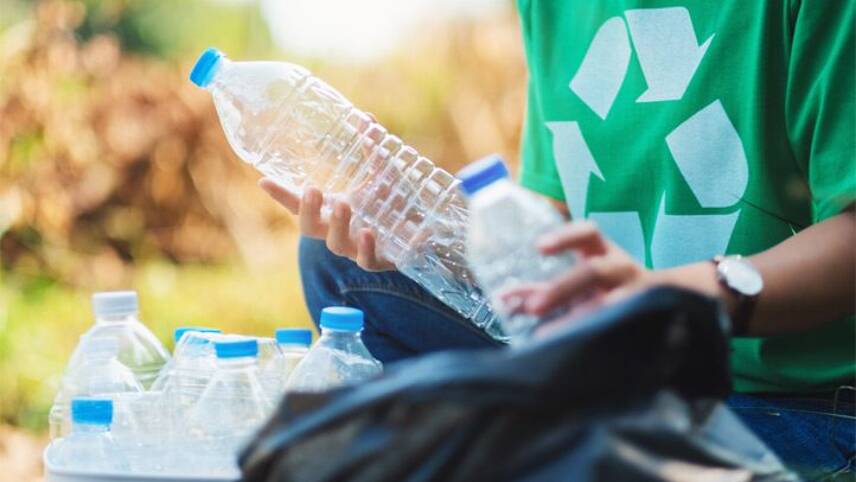Register for free and continue reading
Join our growing army of changemakers and get unlimited access to our premium content

The two organisations have called on businesses to turn to staff engagement programmes and pilots of new innovations and setups to change behaviours
The new report published by Keep Britain Tidy and Brita UK focuses on the ways that businesses can accelerate actions on single-use plastics, based on data collected as part of a YouGov survey of 1,000 UK businesses last year.
The new report outlines that just over half (53%) of businesses feel they are responsible for reducing the use of single-use plastics within their business, while 23% feel a level of responsibility for encouraging customers to reduce the use of single-use plastics.
While three-quarters of the 1,000 UK business respondents noted business impacts on the environment as a key reason to target single-use plastics, 20% claimed they are ‘not at all’ motivated by this.
Finding alternatives to plastics that have less impact on the environment was the major barrier for most businesses, with 39% claiming it was a challenge to some extent. The second most prominent barrier was the cost associated with replacing certain plastics.
The report outlines a list of recommendations imploring UK businesses to increase ambitions on single-use plastics; these include exploring all ‘quick wins’ for phase-outs of cutlery, straws and bags, providing reusables before then turning to staff engagement programmes and pilots of new innovations and setups.
Writing in a blog post for edie, Brita UK’s managing director Sarah Taylor said: “There are a number of ‘quick wins’ that all companies should consider implementing as part of their sustainability strategy. These include banning plastic bottles and plastic straws in workplace canteens; implementing a ‘safe to drink’ campaign to encourage the use of water taps; providing staff with reusable bottle and coffee cups; and eliminating single-use plastic bags.
“This is a marathon, not a sprint. Transformations like eliminating the most prevalent single-use plastic from the business and supply chain cannot be done overnight, especially for small businesses facing myriad other considerations, and there is a clear need for support from larger businesses to go further. For example, just 6% of SMEs reported carrying out an audit of the single-use plastics in their business; there is an opportunity to help ensure all businesses are on the right track.
YouGov data, commissioned by Keep Britain Tidy and Brita UK in July 2019 found that SME action to combat single-use plastics have been sluggish. The survey of more than 1,000 SME decision-makers found that only 52% are doing “all they can” to reduce single-use plastics.
The survey found that 40% of businesses had not carried out basic steps, such as auditing, supply chain engagement or offering alternatives to staff.
SME plastic approaches, in numbers:
- Less than a third (30%): Say their business has encouraged staff to use reusable alternatives
- 20%: have replaced some single-use plastics staff use
- 30% have encouraged staff to use reusables
- 4% have used incentives to encourage customers to reduce their use of single-use plastics
- 6% have carried out an audit of the single-use plastics in their business
- 52% say their business is doing all it can to reduce its single-use plastics
- 15% have taken steps to replace single-use plastic in their supply
- 23% believe their business is responsible for helping customers reduce consumption of single-use plastics,
- 22% think their business has a duty to be a leader in their sector on this issue.
Single-Use Plastics: The 2020 roadmap for sustainable business
edie has today published its own insight report examining the best-practice steps businesses can introduce across the areas of the supply chain, operations, products and services and consumer education to eliminate unnecessary single-use plastics for good.
This insight report, inspired by edie’s Mission Possible Plastics Hub, provides a much-needed progress update on the UK’s transition away from single-use plastics; and acts as a definitive guide for businesses looking to eliminate single-use plastics waste through reduction, redesign and phase-out of the material – in a way that doesn’t lead to any unintended consequences.
The report will include a mix of high-level thought-leadership contributions, best-practice case studies and exclusive findings from industry surveys conducted by edie over the past 12 months, providing readers with a unique insight into how they can become the changemakers on the road to zero single-use plastics.
Matt Mace


Please login or Register to leave a comment.